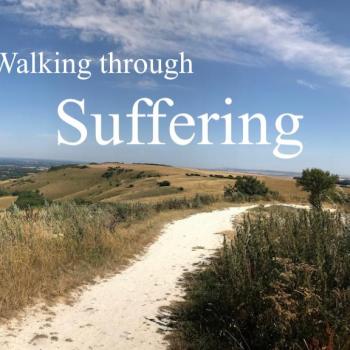Don began by explaining the importance of considering context of bible verses by using the phrase “there is no God.” Which of course is not an advocacy of atheism when seen with the preceding phrase “The fool says in his heart”
The Good Samaritan is not merely saying that we should be kind to neighbours. We need to consider this in its immediate context and in its broader context. The teacher is trying to test Jesus and asks Jesus what he need to do to inherit. Yet an inheritance is a gift. The question is flawed. So Jesus doesn’t just respond immediately. Jesus has quoted the same two passages elsewhere, when he is asked what is the most important commandment in the law. Jesus answers with not only the most important commandment but the second also. Loving God and loving neighbour is just the appropriate response to God having created us. The first commandment is simply not to commit idolatry. That commandment is broken any time any other is broken. Many of the commandments in the Old Testament end by saying “I am the LORD” So all moral behaviour is grounded in this. The lawyer now wants to turn these two commandments into the way to get eternal life. The lawyer wanted to Justify himself just like the lawyer in the story Jesus told about prayers in the temple. It is in this context that Jesus tells us the parable of the Good Samaritan. The priest didn’t want to get “unclean.” The Levite similarly didn’t act. We must understand how much Samaritans and Jews did not like each other. The Jews looked down on them as half-breed people who had only got a half-baked version of the true faith. The Jews had destroyed their temple.
The law asked who is my neighbour. Jesus asks, who is behaving like one. It is not a question of who I must love. Rather it is how I must behave. For whom are you a neighbour? The lawyer couldn’t even bring himself to answer that it was the Samaritan, saying instead “the one who showed mercy.” Jesus then says, “Go and do likewise” The unspoken question is “Now do you want to justify yourself?” Like all of the commandments, these golden rules cant save you. If the only way to get eternal life is to love your neighbour and God in this way then you are dammed and so is everyone else. We must rejoice that our names are written in heaven. That is the only way for us to be grounded in our identity in Christ.
The Good Samaritan is Jesus himself. He comes to us in our brokeness and despite the fact that people despise him, he is the one who pays the entire tab so we are paid. The real question is not “who is my neighbour” but “who has been neighbour to me in all my lostness” Jesus took up his cross for us and uniquely bore our sins in his bodies. Jesus does want us to also take up our cross. He left us an example. We are saved by faith alone, but as the reformers saw, genuine faith is never alone. Some people want our lives to be the ground on which we are entering. No, the grounds are only what Christ does. It is only that which qualifies us to enter heaven. Even as a forgiven Christian, I am a wretched failure. I will be changed by God, but that is not part of the reason for him deciding am acceptable to him. Newton says “I am not what I ought to be, I am not what I want to be. I am not what one day I will be but I am not what I was, and by the grace of God I am what I am.”
The gospel is an announcement of what God has done. We preach the gospel and the effects of the gospel. It is not about moralising. It is what God has done, and yes it does have implications but those are distinct from the message itself.














